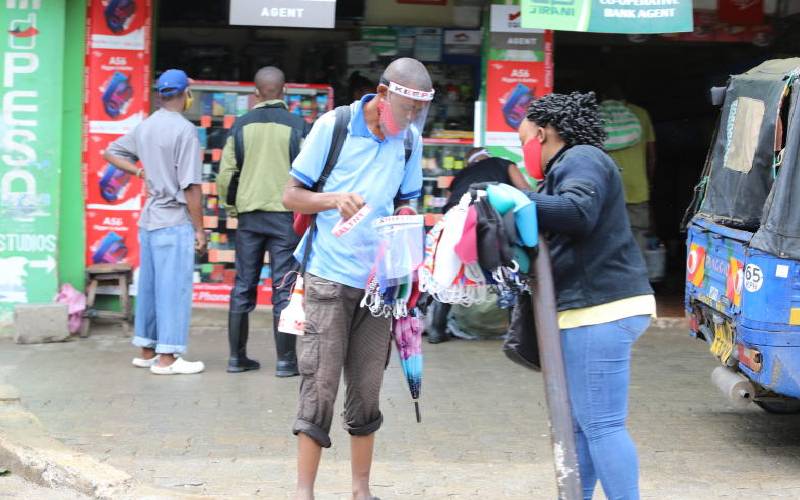
Hawkers sell masks at Lights Stage in Mombasa. [Kelvin Karani, Standard]
“Hustle and break things” is a phrase often used to describe the startup life but it quickly acquired a new meaning in 2020. With a pandemic, businesses were depressed, thousands lost their lives, startups were shattered and working from home become a necessity rather than a luxury. It is in these dire situations that some businesses survived, some even thrived, thanks to resilience, adaptation and a little luck. Hustle did a round-up of five such businesses and what they did to stay afloat.